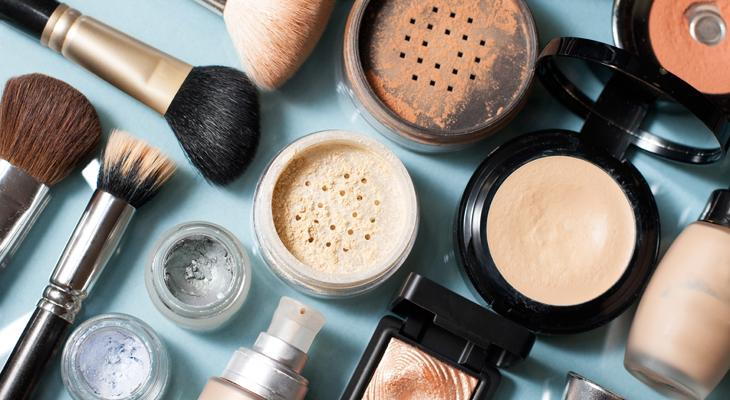
Sight is an important sense. When you can't see well, it's difficult to perform all those daily tasks that seem mundane, including driving to and from work, reading the menu in a restaurant, or watching your favorite show on television. Many of us take our eyesight for granted. But just like physical health, good vision requires care and upkeep.
There are steps we can take to promote good eye health and things that we should try to avoid that can damage it as well. The key is learning which ones are most beneficial and steering clear of those that endanger how clearly we see the world. For these reasons, we've compiled a comprehensive list of things you can do to actively protect your eyes and vision.
1. Practice a Healthy Lifestyle
Diabetic retinopathy is a leading cause of vision loss in the United States. It's caused by an underlying condition of diabetes. When your blood sugar level is too high and remains too high over a period of time, this causes damage to your blood vessels. This includes the blood vessels in your eyes. You can suffer vision loss or even blindness if the condition goes untreated.
To prevent vision loss from blood vessel damage, learn to manage chronic conditions such as diabetes and hypertension, keep regular appointments with your doctor, and see your vision specialist at least once a year. Changes in diet, exercise, and stress management are your best defenses against chronic health conditions like these.
2. Stop Using Tobacco
If you smoke or chew tobacco, you're leaving yourself open to a variety of medical issues, including vision loss. Research has shown links between tobacco use and macular degeneration as you age. Tobacco use may also contribute to glaucoma, cataracts, and dry eye syndrome.
While most people incur a higher risk of developing conditions like these as they age, using tobacco can increase that risk up to three times more. If you are a smoker or if you chew tobacco, now is the time to stop or get help if you are worried about your future vision.
3. See Your Eye Doctor Regularly
Regular visits to your eye doctor are necessary to protect your eyes as you age. Routine eye exams often catch chronic conditions while they're still in the early stages. And early intervention and treatment are key to maintaining good eyesight.
Generally speaking, if you don’t have any existing eye problems, this is how often you should get an eye exam for your age group:
- 20-39 Years of Age - every 2 to 4 years
- 40-64 Years of Age - every 2 to 4 years
- 65 Years of Age or Older - every year
People who have experienced any eye trauma, have a family history of vision disorders, or live with conditions like diabetes need to have their vision examined more frequently.
4. Wear Sunglasses in Bright, Outdoor Light

Sunglasses are more than just fashionable. They can also protect your eyes from the harmful UV rays of the sun. If you've ever spent time outside with the sun reflecting off of white snow, ice, or sand, you know how difficult or even painful it can be to see properly afterward. This can cause a condition known as photokeratitis, a sort of sunburn of the eye.
Experiences like these cause temporary discomfort, but they can also increase your risk of developing a more serious condition such as glaucoma. If you spend time in bright, outdoor light, in a tanning bed, or working with laser light or welding torch, wear protective lenses.
5. Rest Your Eyes From Time to Time
Many of us spend hours a day in front of a computer screen. It may be necessary, but it doesn't have to wreck your vision. If you spend a lot of time logged on, use the 20-20-20 rule. Every 20 minutes, look up from your screen and stare at an object that's 20 feet away for 20 seconds. This allows your eyes to change focus, essentially giving them a break from all the screen time.
6. Take Care of Your Contacts
Contact lenses are great at correcting your vision and helping you see better, but they are also a leading cause of eye infections. To help protect your eyes from infection, be very careful with contacts. Wash your hands thoroughly before putting contacts in or taking them out, and make sure you disinfect them regularly with a contact lens cleaning solution. Try not to sleep or swim in contacts, and be sure to replace them as scheduled.
7. Toss Out Outdated Beauty Products

Using old or contaminated makeup may also contribute to eye infections and other issues. Never share makeup with a friend, and don't use applicators, brushes, or sponges that are soiled or worn out. Bacteria can thrive in conditions like these, especially if your products picked up moisture from a damp sink or drawer.
Use only fresh makeup that has been kept tightly closed and wash your brushes frequently. Toss old sponges and pads and store your products away from dampness and moisture.
Prioritize Your Eye Health
These seven tips will help protect your eyes from damage if you practice them regularly and staying current with your vision screenings will ensure any problems are diagnosed and treated right away.

